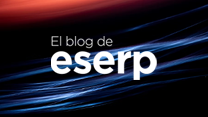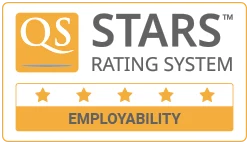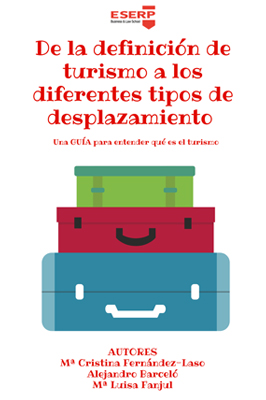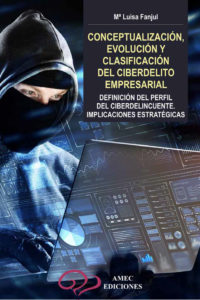The ESERP Observatory is the research centre responsible for developing, coordinating and managing the scientific projects carried out by the university centre, in addition to promoting the dissemination and publication of the results from its research activity in books and book chapters, carried out in collaboration with professors, and in articles for high impact factor journals (national and international).
Some of its main objectives include generating knowledge and promoting interest in research, as well as pushing for those activities that are required to achieve a wider dissemination of scientific information.
ESERP Business & Law School, a university centre with more than 30 years of experience and with campuses in Madrid, Barcelona and Mallorca, promotes research directed at and focused on scientific, social, cultural and economic development, stimulating and promoting research activities and, through it, the release and dissemination of the obtained results and knowledge to the university community and society.
The development of research activities based on R&D is achieved through ongoing collaborations with public and private companies and institutions, as well as participation in calls for research proposals and national and international programmes.
Our activities and projects allow our professors and researchers to develop their own lines of research, always in conjunction with ESERP’s research and scientific principles, to thus collaborate in contributing as much as possible to the production, development, empowerment and transmission of knowledge, science and technology.
The ESERP Observatory is the research centre responsible for developing, coordinating and managing the scientific projects carried out by the university centre, in addition to promoting the dissemination and publication of the results from its research activity in books and book chapters, carried out in collaboration with professors, and in articles for high impact factor journals (national and international).
Some of its main objectives include generating knowledge and promoting interest in research, as well as pushing for those activities that are required to achieve a wider dissemination of scientific information.
The recipients are ESERP’s academic community, as well as students, professors and university and pre-university speakers, the scientific community and society in general.
The scientific activity promoted by the ESERP Observatory is carried out in accordance with the rules and regulations governing university research. ESERP’s Ethical and Social Responsibility principles guarantee compliance for the benefit of the university community and society.
ESERP’s teaching and research activity aims to provide a humanistic view through a cross-cutting and interdisciplinary approach, providing an education in academics and research in accordance with the established standards and requirements in matters of academic quality (ESERP, AENOR, ANECA).
It provides both the scientific and university community and society with the appropriate knowledge to build qualified and competitive professionals who are critical and freethinking citizens, with the intention of cooperating in the conception, organisation, use and exploitation of scientific and research methods aimed at contributing to the achievement of a social, cultural and economic benefit.
The research strategy organises its efforts and is focused on generating scientific knowledge of proven quality and promoting a scientific and research culture, characterised by firm ethical principles and a critical and quality vision, always at the service and in benefit of society.
The research plans and objectives are carried out through the preparation, organisation and development of research projects that take into account the spirit and multidisciplinary, cross-cutting nature of ESERP, the teaching imparted at the centre and the research that has been conducted by the teaching and university community that ESERP collaborates and maintains a relationship with.
The Research Projects are based on the indicators and criteria of scientific quality accepted by the national and international scientific community, directed not only at the all-important task of raising funds, but also the search for human resources that allow the research results to be disseminated and published, with the aim of capturing talent and increasing their scientific reputation.
The Projects are aimed at improving the research and teaching activities that take place at ESERP, positioning the school in the right place within the field of national and international higher education.
ESERP views the improvement of teaching and scientific quality as an institutional challenge shared by its teaching community, and that is to be passed on to our students.
- Business Administration and Management
- Marketing
- International Business
- Business Administration
- Strategic Management
- Communication and Public Relations
- Advertising, Protocol and Events
- Corporate Social Responsibility
- Law
- Criminology
- Human Resources
- Finance, Banking and the Stock Market
- Trade and International Relations
- Tourism
SCIENTIFIC PRODUCTION, ACTIVITY AND DISSEMINATION.
Create reputable, high-quality scientific knowledge (quality indicators) at the service of science, culture and social benefit (social and economic development).
COMPETITIVENESS.
The Research Projects must be competitive in order to help attract resources (teachers and economic resources, public and private) to contribute to research, development and innovation.
RESEARCH AND DISSEMINATION.
The Research results must generate knowledge with the goal of disseminating it in order to improve the university and scientific space, as well as the teaching and learning landscape in our society, collaborating and sharing knowledge that, in turn, impacts and strengthens our future Research Strategies and Projects.
TRAINING.
The ESERP Observatory offers its professors and students research training with the intention of creating professionals who are capable of developing and applying scientific research methods that help improve the quality of university education and, in short, that benefit society.
NATIONAL AND INTERNATIONAL COOPERATION AND COLLABORATION.
ESERP and the ESERP Observatory promote national and international teaching and research collaborations and cooperation, promoting and facilitating the exchange of knowledge and resources, participating in and creating international networks that improve and benefit the scientific community.
The organisation, infrastructure, resources and services of ESERP are focused on a very clear objective, a fundamental goal of any higher education institution: to offer and improve quality teaching and research.
ESERP’s organisational model is well established, sustainable, fair, equal, effective and efficient, consistent and competitive.
The ESERP Observatory has a vertical structure with a horizontal spirit:
DIRECTOR – Mario Barquero Cabrero
COORDINATOR – José Rodríguez Terceño
Luis Ángel Aparicio Ordas (Doctor of Law).
Doctor of Law from the Alfonso X el Sabio University of Madrid. Professor at the ESERP Business & Law School in Madrid; Professor-Doctor at the Alfonso X el Sabio University (Madrid). Professor at the School of International Relations; Management of International Projects, Environment and Management, Terrorism and Organised Crime.
Director of the Working Group on Geostrategy in International Relations and Political Science. Spanish Higher Defence Studies College, EALEDE. Research and Analysis Department. Higher School of National Defence Studies (CESEDEN) Ministry of Defence (Madrid).
Professor/Tutor for the National Defence Course for young people (EALEDE). Higher School of National Defence Studies (CESEDEN) Ministry of Defence (Madrid).
Member of the Editorial and Researcher Committee at the Nueva Granada Military University in Bogotá (Colombia).
International Security Studies Group. Member of the Study Group of International Security (GESI-SEDEF).
Coordinator of the National Security Area of the Spanish Association of Graduates in Security and Defence.
María Luisa Fanjul Fernández (PhD in Marketing).
María Luisa Fanjul has a Bachelor’s Degree in Political Science and Sociology from the Complutense University of Madrid, an MBA from the Antonio de Nebrija University and a University Expert Degree in Tourism and Marketing from the UNED. She received a PhD in Strategy and Marketing in 2013 at the University of Castilla La Mancha and currently combines her research and teaching activity with her work at private companies.
Her main lines of research are related to the application of sociology and marketing in the study of criminal profiles, specifically terrorist behaviour and recruitment and radicalisation (deviance sociology), therefore she regularly collaborates with the magazine “Puntoseguridad”, and works as an analyst at the Institute for Strategic Studies. As for private companies, she is the Director of Communication at the Paraty Tech technology company.
María Cristina Fernández Laso (PhD in Prehistory).
She has a PhD in Prehistory, having received an extraordinary award from the Rovira I Girgili University of Tarragona (2010), a degree in Geography and History from the Complutense University of Madrid (UCM) (1997), and is accredited by ANECA and ACAP as a PhD Assistant Professor, an Associate Professor and a Private University Associate Professor (2012).
She currently works as a professor at ESERP, a centre associated with the Rey Juan Carlos University (URJC), teaching courses for the University Degree in Tourism, Marketing and Business Administration & Management; and for the Master’s Degree in Museology and Museums, as well as several expert courses on Cultural Heritage Management at the Madrid Open University (UDIMA) and 21st-century cultural initiatives.
She is collaborating on a research project on Digital Cultural Heritage at the International University of La Rioja (UNIR), and also manages and participates in the panels that evaluate Master’s Theses.
Archaeologist specialising in Zooarchaeology and bone tracing, she received her training as part of the Research Team at the Atapuerca sites (Burgos), of which she was a member from 1997 to 2010; she has worked at the Atapuerca Foundation (Burgos) (2003-2008), at the Regional Archaeological Museum of Madrid (2001-2012), and at the Catalan Institute of Human Paleoecology and Social Evolution (IPHES) of Tarragona (2008-2010), where she continues to collaborate as a postdoctoral researcher. She has also participated in numerous archaeological excavations, the last being the house of Diana Arcaizante in Pompeii (Italy), where she participates in the research project by the San Fernando Royal Academy of Fine Arts of Madrid.
Pablo Antonio Moreno Valero (PhD in Economics).
University Degree in Law and a PhD in Economics and Public Finance from the Autonomous University of Madrid. Accredited by the ACAP as an Associate Professor and as a Private University Professor. Accredited by ANECA as a PhD Assistant Professor. Professional experience of 15 academic years working as a professor and researcher in the area of applied economics with several publications in specialised high impact factor journals on issues related to tax harmonisation, the Spanish economy, telecommunications, the submerged economy and immigration in labour matters, among others. Publication of a book in a government body, the National Economic and Social Council, as well as book chapters on highly relevant topics such as the Spanish economy and monetary policy in a manual for the University of Washington (McGraw-Hill). Experience providing services to students, in addition to monitoring and evaluating their internships. He carries out management and organisation activities in the economic/business field, resulting in the preparation of reports and opinion pieces that contribute to the growth of society and his professional career. Participation in the media, both in the press (for example, El Confidencial and Te Intersa), as well as on the radio (Gestiona Radio, Cope).
Orlando Gómez González (Doctor in Law)
Doctor in Law from the Complutense University of Madrid (summa cum laude, 2000). Accredited by ANECA as an Associate Professor, Private University Professor and PhD Assistant Professor. He has 19 years of teaching experience at several universities in Madrid, he has participated at International Congresses on Criminal Law and Criminology, and has done several stays at foreign universities as a guest professor. In his research work, he has published books, several chapters in books and various articles in national and international scientific journals specialising in Criminal Law and Criminology, also participating in several research and teaching innovation projects. He combines his teaching and research activity with his professional work as a practicing lawyer who is a member of the Madrid Bar Association (ICAM).
Our students, teachers, researchers and prestigious professionals work together to build a space for scientific research based on trust, cooperation, mutual benefit and a critical, academic spirit.
As a result, the ESERP Observatory seeks to further develop its existing potential and establish international collaborations that benefit our teaching and student community, making ESERP even more visible internationally.
ESERP, as a centre for undergraduate and postgraduate university studies, promotes a comprehensive educational space for everyone who is part of its large community at its campuses in Madrid, Barcelona and Palma de Mallorca, a space for coexisting, studying and working.
The Ethical and Social Responsibility Principles and Values guarantee a teaching and research practice that prioritises knowing how to motivate its members, teachers and students, by defending and putting into practice the following principles and values: freedom, equality, solidarity, commitment, integration, diversity, sustainability, transparency, etc.
Sharing and respecting these Principles and Values is the raison d’être of the members of the ESERP Community. The ESERP Observatory guarantees these Principles and Values are respected, building a university, scientific and research space that is to be used efficiently through shared responsibility.
ESERP is committed to being a supportive and sustainable university centre, a guarantee of Social Commitment.
The ESERP Principles and Values promoted through the ESERP Observatory are aimed at complying with the concept of UNIVERSITY SOCIAL RESPONSIBILITY: the application of a set of principles and values in relation to the basic functions as a higher education centre and in response to the demands expressed by its stakeholders:
- Academic and pedagogical training.
Defending and promoting academic, research, organisational and social participation values. Enhancing the professional role of professors and researchers, with basic functions focused on:
- Professional ethics.
- Curricular content of the degrees adapted to the new social realities.
- Continuous training.
- Cooperation and collaboration with other centres and universities.
- Research and dissemination.
Research lines and projects according to the teaching and professional needs of the university academic world, meeting social demands.
Scientific production is adapted to local, national and international development.
- Management of the organisation.
Basic functions:
- Equality and work/life balance.
- Medium and long-term human resources planning.
- Transparency in the management and dissemination of information (Transparency Portal).
- Rational allocation of resources in teaching and research (ESERP Observatory).
- Care and protection of the environment (sustainability)
- Selection and hiring of suppliers with Social Responsibility criteria.
- Streamlining of administrative procedures.
- Social participation and communication channels.
Manage a transparent, effective and efficient university centre associated with the Rey Juan Carlos University, with a fluid and open relationship with its public and society, ensuring a greater presence and visibility to thus guarantee accessibility to knowledge.
Creation of communication and participation channels that promote and defend the values and ethical principles of ESERP.
Strengthen ties with the university community (students, teachers and researchers, administrative staff), with companies that collaborate or may potentially collaborate, and with society.
ESERP and the ESERP Observatory will continue to opt for a socially responsible, sustainable, supportive and healthy university, improving those lines of action that it has been developing and those that fall within its future plans, offering a comprehensive education through academic and cultural activities, making the centre even more accessible to its environment and promoting cooperation and volunteering.
ESERP will maintain, strengthen and increase the number of collaborations with other centres and universities, and with public and private entities, institutions and companies, both in Spain and abroad.
The university and its students demand greater involvement of the business world in their university studies, which is achieved by means of educational cooperation agreements and with the university’s increased participation in society.
Sustainability.
- Healthy University.
- Cooperation and Volunteering.
- Defence of Human Rights.
- Gender Equality Observatory.
- Teaching and Research Quality.
ESERP, as a centre associated with the Rey Juan Carlos University, offers a higher education service through research, teaching and study, with the following functions at the service of society:
- The dissemination of knowledge, scientific and research culture through university extension courses and continuing education throughout students’ university careers.
- The dissemination and transfer of knowledge at the service of scientific culture, university quality and social, cultural and economic development.
- The preparation of our professors and students to carry out professional activities that require the application of scientific knowledge and methods.
- The creation, improvement, transfer and criticism of science, technology and culture.
We are committed to defending the university as a guarantor of equality and social development. We defend rigour in administrative management and transparency.
We are committed to a high-quality education that builds a critical spirit to create qualified and free university students, professionals and citizens.
ESERP and the ESERP Observatory are committed to promoting their teaching and research activities, as well as their services, following the criteria of sustainability, efficiency and respect for the environment. We are committed to conveying to our students and professors the need to reduce our environmental and ecological footprint and promote environmentally-friendly behaviours.
Commitments:
- Energy efficiency.
- Waste management.
- Responsible consumption.
- Sustainable mobility.
- Curriculum sustainability.
CONCEPTUALISATION, EVOLUTION AND CLASSIFICATION OF BUSINESS CYBERCRIME. DEFINITION OF THE CYBERCRIMINAL PROFILE. STRATEGIC IMPLICATIONS.
Cybercrime has taken shape as one of the biggest criminal problems in recent years. The lack of information in this regard, coupled with the low perception of risk by companies and the fact that the crimes being committed are often one step ahead of the progress being made in the area of prevention, turns cyberattacks into a constant threat to the business environment.
As a result, this research project addresses cybercrime from two clearly differentiated areas.
On the one hand, it intends to unify criteria in order to be able to offer a classification of the techniques and tools used in this type of crime, with the ultimate goal of covering the lack of existing information in relation to cyberspace security and, on the other hand, it offers a characterisation of the cybercriminal through different variables such as personality, level of knowledge and expertise in computers and internet systems, and the place the criminal act is committed.
Likewise, qualitative research is conducted to determine the Spanish entrepreneur’s knowledge of the different cybersecurity threats and the risk they perceive when faced with the possibility of an attack.
The main conclusions obtained are:
- Despite the evolution of cybercrime against companies, there is a lack of information that follows unified criteria. In this regard, it is important to highlight three points:
- The non-existence of a universal definition of cyberattack.
- The non-existence of a classification of cybercrimes according to the techniques and tools used.
- The non-existence of a cybercriminal profile.
- On the other hand, there is a complete lack of knowledge on the part of the entrepreneur of what a cyberattack can entail. Their perception of vulnerability is very low, carrying out no specific actions in this area, since:
- They don’t identify the employee as a threat.
- Their prevention protocols are reduced to browsing restrictions for their employees and the installation of an antivirus and firewall.
- They do not consider the possibility that the rest of their networked computers could be threatened.
Additionally, it has been concluded that:
- There is conceptual confusion regarding the concepts of tool and technique. Many tools are used in different attacks.
- Vulnerabilities are discovered after the attack, which prevents companies from being able to react.
- It is necessary to move faster than cybercriminals in order to address any gaps in networked systems. Along these lines, it is also necessary to invest in R&D.
- Offline crime only differs from online crime in terms of the environment in which the crime is committed; therefore, the modus operandi and crime scene may vary, however, their motivations are exactly the same.
- Knowing your adversary is always an advantage. In this sense, analysing cybercriminal behaviour allows us to anticipate their movements by being able to detect suspicious habits.
Finally, research determines that for as long as there are no behavioural changes in Spanish entrepreneurs, it will be very difficult to stop cybercrime. This is due to the fact that the non-perception of insecurity, coupled with the fact that no company believes they are likely to be attacked, limits opportunities for prevention through the marketing of security systems.
——————————————————————————————————
ANALYSIS GROUP AND RISK OF TERRORIST THREATS: ASYMMETRY, DISSYMMETRY AND PERCEPTION OF CONFLICT.
According to the National Security Strategy of Spain (NSS), terrorism represents a very direct threat to the life and security of citizens, in addition to putting critical infrastructure, supplies and services at risk. Likewise, in addition to the domestic terrorism that Spain has suffered for more than fifty years, like other countries in our environment, our country is currently the target of jihadist terrorism. The evolution of the latter in certain geographical areas close to Spain becomes even more important when it comes to guaranteeing Spain’s national security, together with our partners and allies.
The researcher’s job is to get closer to uncovering the truth of the things around him or her, trying to overcome barriers that appear along the way and opening up new areas of knowledge, which in turn generate new synergies so that scientific research can continue to provide solutions to address this threat that stands as a historical constant in the development of societies.
Our scientific interest has to cover different stages in order to have a thorough understanding of the terrorist phenomenon and thus be able to respond to a type of criminal activity based on violence and terror.
The terrorist phenomenon provokes emotional reactions, it conditions attitudes, attempts to influence society’s decision-making process, tries to undermine and modify the functioning of institutions and affects the way in which power is structured and distributed in a democratic society. It forces the State to create a response by pushing it to enter a different space and, from its irregularity, it modifies the dimensions of tactical and strategic operations, dimensions that are not only confined to the battlefield but that will also force the public authorities and all of society to get involved in the security of their State.
To achieve the set objectives, it is necessary to select the most representative indicators of the terrorist phenomenon and its trend in future situations. It is important to keep in mind that the scenarios must be realistic, that is, they must be achievable.
- Analysis of the terrorist threat: asymmetry, dissymmetry and symmetry.
- Analysis of the different types of terrorists: past analysis and analysis of current threats.
- Development of research skills in third and fourth-year criminology students.
- Risk control analysis: The ECR aims to: ensure the identification of the threat, neutralise it as quickly as possible, create a permanent security-based approach and design a model that adequately responds to a permanent threat.
- Development of the ESN as a shared project: involve society in the security of their country.
- Protection and defence of Spanish Cultural Heritage and tourism.
- Complement research activity with assessable internships.
- Open up collaborative spaces with public and private organisations.
——————————————————————————————————————————
CHILDREN’S STORIES IN GENDER SOCIALISATION. TRANSMISSION OF VALUES AND IDEALS IN STRUCTURAL INEQUALITY.
People’s behaviour is not determined exclusively by a component of genetic origin, instead what is learned in society also influences their education; a learning process that we refer to as socialisation.
Within the broad concept of socialisation, one of the areas that most affects behaviour is that which we call gender socialisation, defined most often as the process through which one learns to think, feel and behave as men and women according to the traditions, norms, beliefs and values that each of the different cultures dictates for its members according to their sex (gender norms). In this way, men and women are socialised differently, which means that society expects them to behave in a certain way in relation to their sex and that actually translates into the existence and perpetuation of structural inequality.
Children’s stories, in the meaning they’ve acquired in recent years, far from the traditional wonderful story or fairy tale, for which Disney is in large part responsible, both in their literary (written) and cinema (animated) versions, are instruments that contribute to gender socialisation, in the sense that through their form and substance, through stereotyped characters, they can convey a whole range of discriminatory prejudices that reinforce socially assigned behaviours, roles and and functions to men and women and are characterised by this structural inequality that establishes dominant identities, in the case of men, and subordinate identities, in the case of women.
In this context, what this research paper proposes is an analysis of the role of children’s stories in today’s society, elaborating on the beliefs transmitted through children’s literature and cinema (gender norms) and that may involve limiting experiences in future behaviours based on sex.
The objectives of the paper are raised in the following questions:
- What is the role of children’s stories in defining male and female roles?
- How does children’s literature and cinema contribute to the creation of social representations that limit behaviour?
- What explanation can be given for adult behaviour based on male and female stereotypes transmitted through children’s stories and films?
With the intention of identifying the key elements in the construction of limiting behaviours and conducts (gender norms), the values and principles transmitted by some children’s stories (as well as their animated versions) will be analysed, beginning this journey with the analysis and study of actions, events and characters in the story made popular by The Beauty and the Beast (Jeanne-Marie LePrince de Beaumont, 1756), establishing a comparison with respect to the free version Disney made of The Beauty and the Beast (Gary Trousdale and Kirk Wise, 1991).
——————————————————————————————————-
PREVENTION OF CHILDHOOD, ADOLESCENT AND ADULT SEXUAL ASSAULTS (PASINAD).
Sexual assaults and, more generally, aberrant, motivated sexual behaviour, are most often due to the lack of an appropriate and constructive sexual education, the main cause of violent sexual behaviours. And although they have always existed, today they are unfortunately much more visible with greater diffusion and reach than one could have imagined only a few years ago.
The naturalisation of sexual assault has become of the most serious problems faced by society today, and is present in all different age groups: childhood, adolescence and adulthood. The PASINAD project was created with the intention of creating protocols for the prevention of sexual assault through actions and activities that, at different age ranges, allow for the construction of a much needed space for carrying out the sexual education work that today’s society requires.
PASINAD’s main objective is to create interactive lessons designed to educate about sexually responsible behaviours. These lessons, which will have various forms such as workshops, group dynamics, conferences, etc., will be developed according to the specificity of the target group, according to their age:
- Childhood (from 6 to 12 years old), promoting responsible behaviour through pre-designed games to educate (and entertain), identifying aberrant or aggressive sexual behaviours and conducts, or that may lead to such.
- Adolescence (from 12 years old and up), generating dynamics of normalised sexual education that is complementary to compulsory education, naturalising the sexual instinct and interest (that is, eliminating taboo) and providing the appropriate tools to identify and avoid attitudes, behaviours and actions that are within sexual assault. The importance of education in this stage requires the participation of parents and guardians, actively involved in these dynamics.
- Adult age (from 30 years old and up). At this stage, the objective is to build frameworks of action where it is possible to identify and control emotions, identifying those directed at aggressiveness (self-control), enhancing social skills and eliminating scenarios that tend to lead to deviant behaviour, as well as conflict resolution techniques where aggressiveness and aggression are left out, prioritising personal freedom in sexual matters, and obtaining a series of tools aimed at avoiding behaviours that lead to sexual assault or relapse.
ESERP E-BOOK COLLECTION
Communication is one of the key principles of any company. It is obvious that without communication, our presence is diluted and we lose strength in the market, even when our product is better than that of our competitors.
We need to tell consumers that we are here, that we’ve arrived and that we can offer them everything they want because we adapt perfectly to their needs.
Currently, companies also have numerous communication tools supported by an atomisation of communication formats that allow them to reach their target audience with relative ease.
You can read this book online or download it using the following LINK
Deviance sociology is responsible for studying human behaviour that moves away from what is socially expected and accepted and that forms the set of behaviours that are viewed as deviant. The established social order, together with social control, definitively contributes to preventing this type of behaviour through socialisation and control agents. Even so, there are still many occasions when avoiding violence is not possible.
In this guide, you can find an overview of the different types of violence that currently exist, as well their forms and context.
You can read this book online or download it using the following LINK
Tourism is considered one of the most important activities in the Spanish economic landscape.
Its contribution to GDP is indisputable. It is, however, very important to know that not all trips are considered tourism. Just like how it’s extremely important to distinguish between the different types of tourisms that exist.
And the reason is that not all tourists have the same needs, based on which we must develop our service, not forgetting that being a destination country means being able to have something competitive to offer.
You can read this book online or download it using the following LINK
Cybercrime has taken shape as one of the biggest criminal problems in recent years. The lack of information in this regard, coupled with the low perception of risk by companies and the fact that the crimes being committed are often one step ahead of the progress being made in the area of prevention, turns cyberattacks into a constant threat to the business environment.
You can read this book online or download it using the following LINK
People’s behaviour is not determined exclusively by a component of genetic origin, instead what is learned in society also influences their education. This learning process is identified with what is defined as socialisation.
You can read this book online or download it using the following LINK
Contact
You can contact us by email at [email protected]















